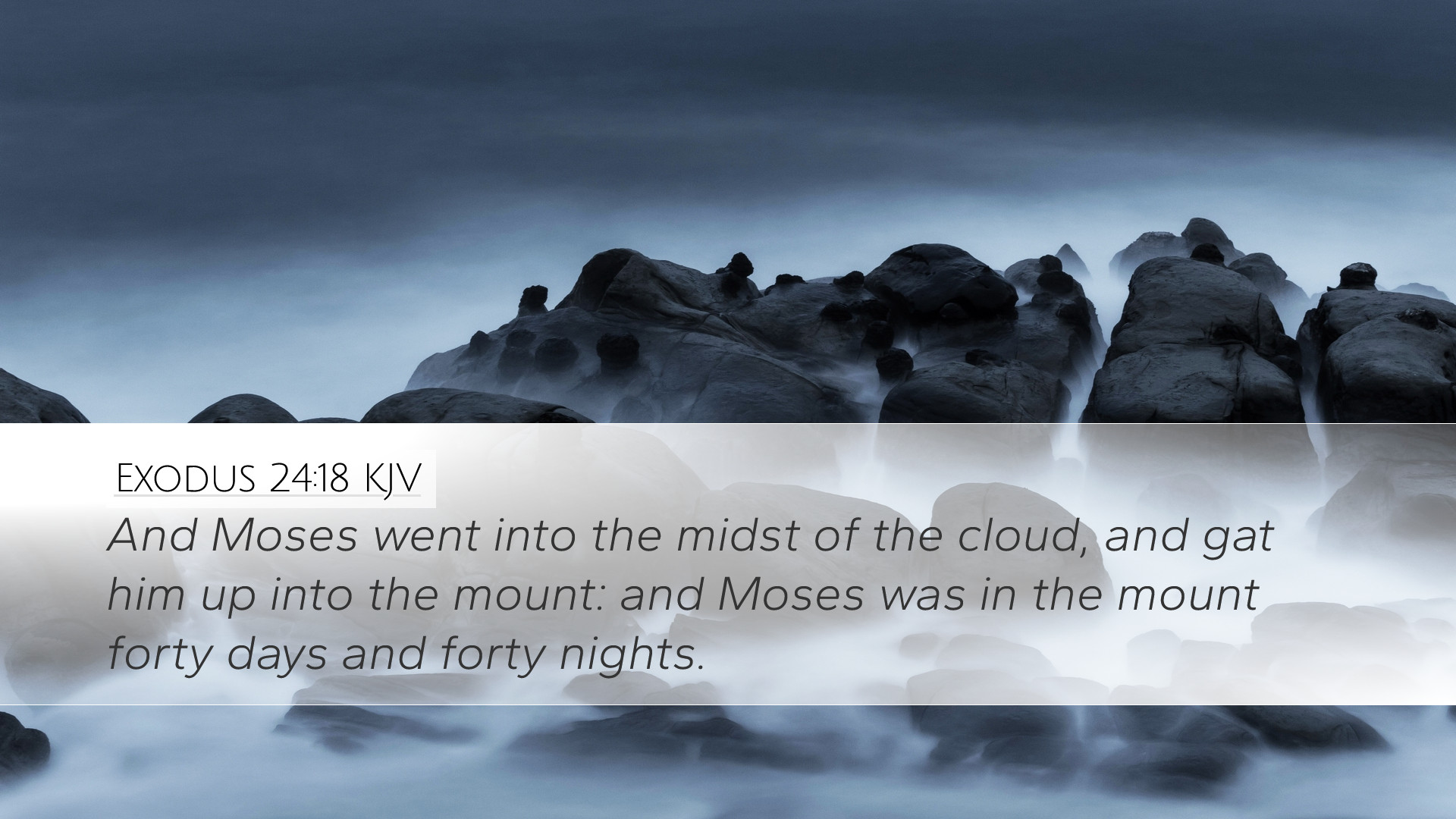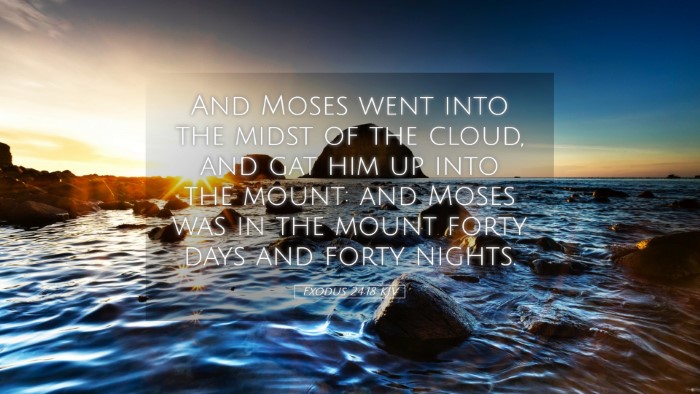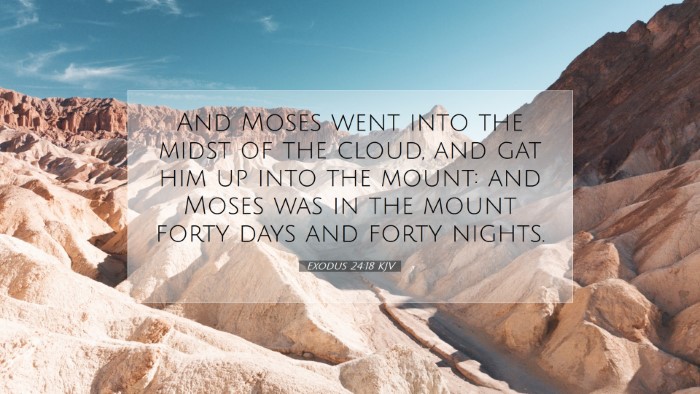Exodus 24:18 - A Commentary
Verse Text: "And Moses went into the midst of the cloud, and gat him up into the mount: and Moses was in the mount forty days and forty nights."
Introduction
The phrase "Moses went into the midst of the cloud" signifies a pivotal moment in Israel’s history. This verse encapsulates not just the physical ascent of Moses into the mountain but also his spiritual elevation. His forty-day sojourn on Mount Sinai is significant for understanding the nature of divine revelation and the covenant relationship established between God and Israel. Various public domain commentaries provide deep insights that enhance the understanding of this text.
Moses and the Cloud
Matthew Henry in his commentary underscores the importance of the cloud as a symbol of God's presence. "The cloud was a visible symbol of God’s glory and majesty, a reminder that Moses is entering into a sacred, divine communion." This divine encounter transforms Moses and invites him into a unique fellowship with the Almighty.
Albert Barnes elaborates on the role of Moses in this event and how his ascent signifies a mediator between God and the people of Israel. "Moses' entrance into the cloud signifies the entrance into a deeper spiritual understanding and relationship with God". The cloud indicates the holiness of God, reminding us that access to God is both a privilege and a solemn responsibility.
The Significance of Forty Days and Forty Nights
Adam Clarke highlights the importance of the time frame of "forty days and forty nights." This duration is rich with biblical symbolism representing periods of testing and preparation.
- Spiritual Preparation: Clarke notes that this season in the cloud equipped Moses with the knowledge necessary to lead the Israelites.
- Testing: In previous scriptures, the number forty often represents a time of trial, as seen in the Israelites wandering in the desert and Jesus’ temptation in the wilderness.
- Divine Revelation: The length of time emphasizes the depth of revelation Moses receives—this is not a momentary glance at God’s will, but an immersion in divine instruction.
Moses as a Mediator
As mediators, figures like Moses bridge the gap between God's holiness and human frailty. Henry's commentary highlights that Moses’ ascension is essential in understanding the later New Testament theme of Christ as the ultimate mediator. The role of Moses foreshadows the greater mediation provided in Christ, who intercedes for humanity.
Theological Implications
The act of Moses entering the cloud opens up important theological themes regarding God's omnipresence and transcendence. Barnes remarks on how God's presence dwells in the cloud, echoing the idea that while God is transcendent, He chooses to reveal Himself within the created realm.
1. God's Holiness: The cloud signifies God’s incomprehensible holiness, a theme that runs throughout the biblical narrative. This notion compels us to approach God with reverence and humility.
2. Communication with God: Moses’s experience emphasizes the importance of communication in the covenant; God desires to share His will with His people through prayer and revelation.
The Context Within Exodus
Within the larger narrative of Exodus, this verse serves as a crucial transition. It marks the moment where God solidifies His covenant with Israel. Henry points out that God had established a relationship with Israel, and now, He provides them with the law through Moses—His chosen instrument.
Application for Today
This verse holds profound implications for modern believers. As pastors and church leaders, we can draw parallels between Moses’ experience and our journey in faith today.
- Embrace Time in Prayer: Just as Moses spent forty days seeking God's presence, so too should we prioritize prayer and silence to hear God’s voice.
- Understanding God's Holiness: We are reminded of the importance of approaching God with reverence, recognizing the holiness that envelops Him.
- Mediation through Christ: Christians are to acknowledge their approach to God through Christ, who is our high priest, emphasizing the intimate relationship we have with the Father.
Conclusion
Exodus 24:18 is not merely a historical account; it carries deep spiritual truths and implications for our relationship with God. The commentary by Matthew Henry, Albert Barnes, and Adam Clarke reveals layers of meaning concerning God's presence, the role of Moses, and the lasting significance of divine revelation. This verse invites all pastors, students, theologians, and scholars to reflect on their journey toward communion with God, recognizing the awesome nature of His holiness and the privilege they have to approach Him through Christ.


